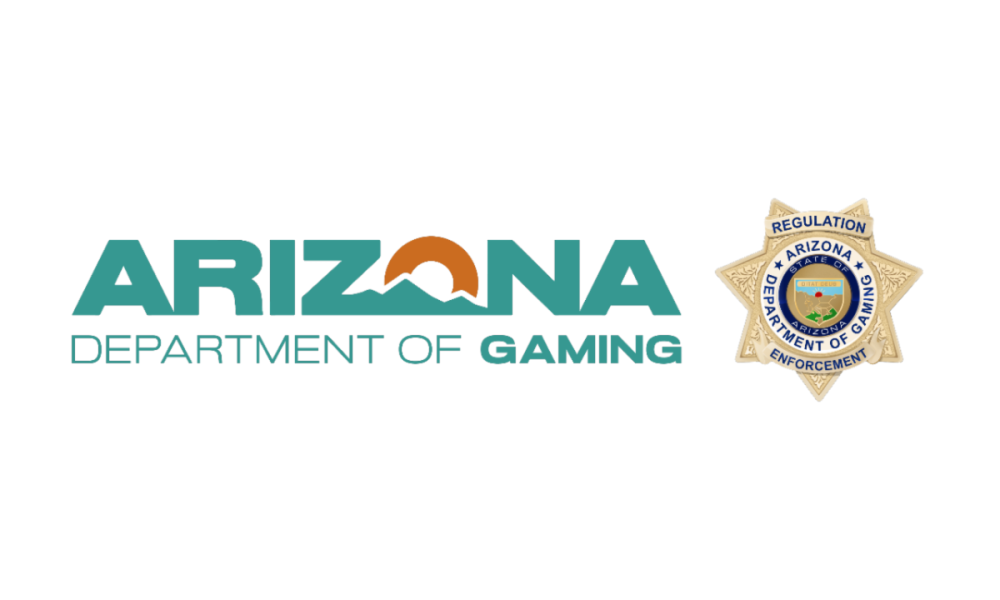

Latest News
Five Years Post-PASPA: The Spread of Legal Sports Betting in the USA
Five years ago, the Professional and Amateur Sports Protection Act (PASPA) was repealed by the Supreme Court, kicking off one of the fastest periods of gambling legalization ever seen in the USA.
The repeal of PASPA, which had prevented all but a handful of states from regulating sports betting, started a revolution in real money betting that has forever changed the US gambling industry.
Five years later, it’s time to look back at how the market has developed and the legal, economic, and social effects of this monumental change.
The Context: The Downfall of PASPA
PASPA was a federal law that came into effect in 1992. It included all states except Nevada, Oregon, Montana, and Delaware, which were excluded because their laws already had sports betting provisions.
PASPA outlawed sports betting in all other states, effectively banning it nationwide. This didn’t mean that sports betting wasn’t happening; it was just an underground, offshore activity.
PASPA remained in force until May 2018, when the Supreme Court ruled it unconstitutional. This was thanks almost entirely to the efforts of New Jersey, under the leadership of Governor Chris Christie, who brought the legal challenge after trying to legalize online sports betting in 2011 and 2014. New Jersey argued that part of PASPA violated the anti-commandeering doctrine (the tenth amendment), which, in overly simple terms, prevents the federal government from coercing states to adopt or enforce federal laws.
The District Court first heard New Jersey’s case, then the Third Circuit, with both ruling against them. However, upon appeal, the case was heard by the Supreme Court (SCOTUS) on May 14th, 2018. SCOTUS agreed that PASPA violated the anti-commandeering principle, rescinding the entire act and stating that PASPA was meant to work as a whole, meaning that if part of it was not legally viable, the whole act must be struck down.
Legal Outlook: 38 States Legal, 12 To Go
With PASPA gone, each state now had the right to decide whether to legalize sports betting, with a majority opting to. As of November 2023, 38 states have said yes, passing new laws that allow retail sports betting. Online sports betting is also available in 26.
 There are 12 states left to legalize. Three of them (South Carolina, Alabama, and California) face strong opposition, and the remaining nine are looking to introduce bills in the 2024/2025 legislative sessions. North Carolina and Minnesota are tipped to be the next to join the fray, and Oklahoma introduced a new proposal two months ago.
There are 12 states left to legalize. Three of them (South Carolina, Alabama, and California) face strong opposition, and the remaining nine are looking to introduce bills in the 2024/2025 legislative sessions. North Carolina and Minnesota are tipped to be the next to join the fray, and Oklahoma introduced a new proposal two months ago.
The legal landscape remains complex, with different rules, regulators, and taxation regimes in each state. On top of this, in certain locations, the presence of tribal gaming compacts has conflicted with commercial interests (the ongoing case of Florida sports betting and tribal opposition in California serve as perfect examples).
Growth of Online Casinos – Not Going As Planned
While there was no guarantee, many industry experts and commentators hoped that the legalization of sports betting would soon be followed by online casino regulation. However, thus far, only six states have legalized online casinos: New Jersey, Delaware, Pennsylvania, Michigan, West Virginia, and Connecticut, the latest to join the ranks, passing HB 6451 in 2021. Since then, there’s been no further movement for online casinos.
Players outside the mentioned states may only use land-based casinos or free social gaming sites where available. Sweepstakes casinos are also available across the country, Idaho and Washington aside. As a legitimate gaming option, sweepstakes are taking the US by storm, but just like with real online casinos, players should use a review site to find the best options.
As sweepstakes casinos don’t require a license in the USA, expert advice such as Casino Cabbie’s Wow Vegas Online Casino Review highlights any security issues and the benefits and pitfalls of each site as well before players sign up, making them an invaluable resource.
Economics: More Than $220 Billion Spent On Sports Betting Since 2018
One of the biggest drivers of sports betting legalization is the promise of potential tax revenue. The US sports betting industry is enormous, and since 2018, more than $220 billion has been spent on wagers, contributing over $3 billion in state taxes. The revenue earned by states has been instrumental in funding local projects and new initiatives, as well as responsible gambling research and support.
More in-depth and up-to-date research focusing on the exact economic contribution of sports betting is thin on the ground, and the last comprehensive study by Oxford Economics was published in 2017. At the time, it detailed that the entire sports betting industry created over 216,671 jobs.
Due to the lack of current data, we’re left to turn to figures charting the impact of the entire gambling industry, which includes casinos and sports betting. According to statistics from the American Gaming Association in 2022, US gambling is a powerhouse industry, creating, in total, 1.8 million US jobs, with $104.2 billion in wages (these figures include the entire supply chain).
There can be no argument that over the last five years, US sports betting has been a substantial economic contributor, helping state governments recover from COVID-19, creating jobs, and stimulating economic growth.
Social: 77% of American Adults Support Legalization in their State
Legally and economically, things have changed rapidly in the States since the repeal of PASPA, but what about the social impacts?
Research shows that 85% of Americans think the removal of PASPA was correct, with 77% now supporting sports betting legalization in their state. Moreover, the number of Americans open to placing sports bets has grown by 24 million since 2019. With many enjoying the newly legal betting options available to them, public attitudes towards gambling as a whole have seemingly softened.
With many states also benefiting from increased government budgets brought through sports betting tax revenue, it’s important to recognize the benefits this has made to social provisions. Many states have used the influx to contribute more money to education funds and other social causes, like reducing homelessness.
A proportion of the money is also used to fund state problem gambling assistance, with many running state-based hotlines and counseling services. Nonetheless, in many cases, this funding is not enough to offset the increased rates of gambling harms caused by legalization.
Future Outlook: Challenges and Concerns
Looking forward, the US online sports betting industry has a projected compound annual growth rate (CAGR) of 17.33% for 2023-2027, meaning there’s much more to come. However, this rapid growth will lead to some challenges.
Offshore gambling has been a considerable issue for the legal sports betting market. In 2022, The American Gaming Association estimated that Americans wagered $63.8 billion with illegal bookies, costing $3.8 billion in lost gaming revenue and $700 million in state taxes.
While offshore gambling is reducing, the latest data shows that 77% of online sports bets are now placed through regulated operators, compared to just 44% in 2019. However, things are not all rosy, and 48% of those who bet offshore believe they are placing legal wagers.
Gambling addiction also poses a considerable threat to the sustainability of the entire US gambling industry, with some states recently reporting problem gambling rates over 6%, which is three times the national average (to contextualize this figure better, the UK has a problem gambling rate of 0.2%). High rates of problem gambling twinned with rapid growth potentially represent a ticking time bomb that could rock the entire US industry.
It’s undoubtedly been an incredible five years for US bettors and sportsbooks; as a newer gambling market, the US must now look to more mature gambling jurisdictions to see what player protection methods work best and implement them sooner rather than later.
Latest News
Arizona Department of Gaming and Arizona Lottery Announce Proclamation Recognizing September 2025 as Responsible Gaming Education Month

State agencies join forces to raise awareness, promote prevention, and provide tools for safe and responsible play.
The Arizona Department of Gaming (ADG) and the Arizona Lottery are proud to announce a joint effort in support of a new Proclamation recognizing September 2025 as Responsible Gaming Education Month in Arizona.
Responsible gaming is about ensuring that individuals who choose to play have the tools, resources, and knowledge they need to make informed decisions and enjoy gaming as a form of entertainment. While problem gambling initiatives focus on helping those already experiencing harm from gambling, responsible gaming emphasizes prevention by encouraging healthy play behaviors before they reach a critical point.
Throughout September, and continuing in the months ahead, the ADG and Arizona Lottery will work together to strengthen education and awareness initiatives. The goal is to equip players with strategies and resources that help them keep gaming fun and safe, while helping reduce the risks associated with problem gambling.
“For over 30 years, the Arizona Department of Gaming has safeguarded the integrity of gaming through strong consumer protections, enforcement against illegal operators, and support services for those impacted by problem gambling,” said Jackie Johnson, Arizona Department of Gaming Agency Director. “During Responsible Gaming Education Month, we remind everyone that part of playing responsibly is being informed—always double-check before you place your bet to ensure you are using a legal, regulated operator at gaming.az.gov/checkyourbet.”
The Arizona Lottery also remains steadfast in its commitment to responsible play and has a Level 2 certification with the World Lottery Association for responsible gaming. Lottery games benefit the people of Arizona by generating critical revenue that funds education, healthcare, environmental conservation, and economic development. At the same time, the Lottery prioritizes the well-being of its players. Each ticket includes clear odds of winning, vending machines display game odds, and the 1-800-NEXT-STEP helpline is featured across Lottery products and advertising.
“We are proud to deliver entertainment that benefits communities across our state, while recognizing our responsibility to promote safe play,” said Alec Thomson, Arizona Lottery Executive Director. “Through transparency and awareness, we want every player to have the tools they need to make informed decisions and enjoy the Lottery responsibly.”
As Arizona observes Responsible Gaming Education Month, ADG and the Arizona Lottery encourage all players to stay informed, know their limits, and seek help if needed. Together, we can ensure that gaming remains a source of entertainment that strengthens, rather than harms, Arizona communities.
For more information and resources, visit gaming.az.gov/ResponsibleGaming or ArizonaLottery.com/ResponsibleGaming. If you or someone you know may be struggling with problem gambling, call or text 1-800-NEXT-STEP for confidential support available 24/7.
The post Arizona Department of Gaming and Arizona Lottery Announce Proclamation Recognizing September 2025 as Responsible Gaming Education Month appeared first on Gaming and Gambling Industry in the Americas.
Canada
absolutebet Secures AGCO Registration as an Internet Gaming Operator in Ontario

Internet Gaming Operator by the Alcohol and Gaming Commission of Ontario (AGCO).
This significant milestone authorizes absolutebet to offer regulated iGaming services in Ontario’s legal market under the oversight of AGCO and iGaming Ontario (iGO).
The registration marks a key step in absolutebet’s mission to bring a trusted, responsible, and innovative online casino experience to Ontario players. absolutebet is committed to operating with integrity and transparency, meeting all provincial standards for player protection, responsible gambling, anti-money laundering, and game integrity.
“Securing AGCO registration is more than a milestone—it’s the start of absolutebet’s journey in one of the most exciting regulated markets in the world,” said Chen Truman, Founder of absolutebet. “We are building a brand that will grow with the Ontario community and set the stage for future expansion.”
On the regulatory milestone, Krisztina Kalla, Legal & Regulatory Compliance Advisor of absolutebet, commented: “I’m incredibly proud to see all the hard work behind this license pay off. Securing AGCO registration has taken months of preparation and close collaboration with regulators and partners. I am very happy to see the result of that work, and even more excited as we move into the launch phase and open up the absolutebet community to Ontario players in a fun and responsible way.”
Ontario is recognized as one of the most competitive and fast-growing regulated iGaming markets in North America. With AGCO registration secured, absolutebet will move forward with the final stages of its iGO onboarding process in preparation for launch.
The post absolutebet Secures AGCO Registration as an Internet Gaming Operator in Ontario appeared first on Gaming and Gambling Industry in the Americas.
Latest News
VeliTech Appoints Mats Lundin as Chief Sales Officer

Seasoned iGaming executive brings decade of commercial expertise to drive B2B growth
VeliTech, the B2B technology division of Veli Group, today announced the appointment of Mats Lundin as Chief Sales Officer (CSO). Lundin brings over 10 years of commercial leadership experience across the iGaming sector to accelerate VeliTech expansion as operators worldwide seek battle-tested platform solutions.
In his new role, Lundin will spearhead VeliTech global sales strategy, focusing on delivering the company’s comprehensive suite of iGaming solutions to operators seeking proven technology backed by real-world performance. His appointment reinforces VeliTech commitment to partnering with operators who demand more than promises – they want technology that is already winning in the market.
“Mats embodies the kind of proven expertise that our operator partners expect,” said Giorgi Aleksidze, CEO at VeliTech.
“His track record of building meaningful relationships and driving revenue growth aligns perfectly with our approach of backing our technology with real results. When we say we bet on our tech, we need leaders who understand what that means in practice.”
Lundin joins VeliTech from Vegangster, where he served as Sales Manager. His career spans key roles including Director of Sales and Chief Commercial Officer at Gaming Corps, Head of Sales at iSoftBet, and various commercial positions where he consistently delivered revenue growth and market expansion
“What drew me to VeliTech is their unique position in the market,” said Lundin.
“This is not just another platform provider making bold claims – this is a team that operates their own gaming brands and proves their technology works where it matters most. That combination of technical excellence and real-world validation creates compelling value for operators.”
Throughout his career, Lundin has specialised in provider and operator relationship management, regulatory navigation, and market analysis. His expertise spans both B2B and B2C sectors, with a proven ability to identify growth opportunities and translate them into sustainable commercial success.
The VeliTech platforms cover all critical aspects of iGaming, including player account management, no-code CRM, payment gateway, content aggregation, and game development. The appointment of Lundin as CSO comes as the company continues expanding its presence across regulated markets, from European casinos to emerging African markets.
The post VeliTech Appoints Mats Lundin as Chief Sales Officer appeared first on European Gaming Industry News.
-

 gaming3 years ago
gaming3 years agoODIN by 4Players: Immersive, state-of-the-art in-game audio launches into the next generation of gaming
-
EEG iGaming Directory8 years ago
iSoftBet continues to grow with new release Forest Mania
-
News7 years ago
Softbroke collaborates with Asia Live Tech for the expansion of the service line in the igaming market
-
News7 years ago
Super Bowl LIII: NFL Fans Can Bet on the #1 Sportsbook Review Site Betting-Super-Bowl.com, Providing Free Unbiased and Trusted News, Picks and Predictions
-
iGaming Industry8 years ago
Rick Meitzler appointed to the Indian Gaming Magazine Advisory Board for 2018
-
News7 years ago
REVEALED: Top eSports players set to earn $3.2 million in 2019
-
iGaming Industry8 years ago
French Senator raises Loot Boxes to France’s Gambling Regulator
-
News7 years ago
Exclusive Interview with Miklos Handa (Founder of the email marketing solutions, “MailMike.net”), speaker at Vienna International Gaming Expo 2018








